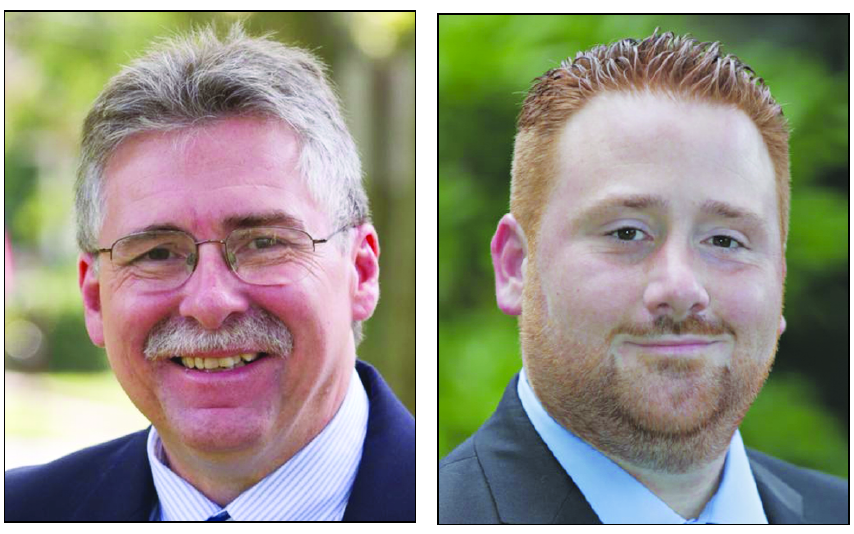
BY JOHN SNYDER
OF PASCACK PRESS
WESTWOOD, N.J.—Republican Ray Arroyo will take his oath of office for a third term on the Westwood Borough Council following his successful contest against several mail-in ballots cast in the 2018 general election, defeating Democratic challenger James Whelan.
Superior Court Judge Estela M. De La Cruz ruled Feb. 6 that three Democratic ballots in the close race were from former Westwood residents who were mailed local ballots to complete and erroneously believed they still basically lived here.
Following challenges and uncertainly lasting a quarter of a calendar year, the proper results of the Nov. 6, 2018 council election are 2402–2400. Whelan had been teetering on a win by one vote since Dec. 5.
By law, a voter must reside in Westwood for at least 30 days prior to the election in order to vote in a Westwood election. The law allows for dependent children being away at college or in the armed forces. That was not the case here, De La Cruz said.
Arroyo told Pascack Press on Feb. 7 that he still has to be certified the winner and expects to be sworn in for his third term at the next meeting of the governing body, Feb. 19 at 8 p.m. at the municipal complex, 101 Washington Ave.
Against this newspaper’s copy deadline, he shared with a reporter a draft of remarks he intended to post, which include this postscript:
“I thank everyone who supported my candidacy and my subsequent election challenge. You contributed funds, heartfelt encouragement, and not a few prayers. I am humbled and grateful for your faith in me. And I am ready to continue serving Westwood.”
The night of Feb. 6, Whelan conceded, posting in part, “I thank everyone who has supported me from the very beginning until the unfortunate way the election ended today. I truly hope the Westwood Democratic team decides to let me take another crack at it in the 2019 election as I feel I have a lot to offer this town as a member of the council.”
Until then, he added, “I will continue to contribute as a member of the Planning Board and in any other way I can.”
Arroyo had challenged De La Cruz’s Dec. 5 decision that gave Whelan the victory by lone vote, 2,403–2,402 in a Dec. 3 recount he demanded following his four-vote loss in the general election.
He pointed out that social media posts and other evidence showed a number of mail-in voters live, play, and work in other cities and states, and, with the judge, rejected the other side’s assertion that “home is where the heart is.”
In August 2018, Gov. Phil Murphy signed a law automatically directing vote-by-mail ballots to voters if that’s how they cast their ballots in the 2016 election.
These voters continue to get ballots by mail for every election unless they opt out in writing with their county clerk.
Proponents said the rule would enfranchise voters; critics said it would lead to confusion.
In his lawsuit, Arroyo alleged that some of the ballots belonged to former classmates of Whelan, called the flagged votes illegal, and urged that the judge allow him to be certified the winner.
Neither Whelan nor Arroyo was sworn in at the Jan. 2 reorganization meeting per De La Cruz’s order, pending the outcome of a hearing Jan. 28 and 29, which included depositions and live testimony from witnesses, including voters.
Mayor John Birkner Jr., a Democrat, is up for reelection this year, as are Republican councilmembers Robert Bicocchi and Beth Dell. With Arroyo’s pending return, Birkner no longer has what he might have hoped for in the ability to lodge a tie-breaking vote on party-line questions.
‘Transient generation’ cited in arguments
De La Cruz’s final Feb. 6 decision showed she struck three mail-in over lack of residency. Arroyo asked for another one to be tossed where the voter had evidently chosen the Republican ticket then “whited out” the names, choosing the Democrats after the fact, and sought one added in “notwithstanding the lack of a postmark.”
Arroyo introduced 14 pieces of evidence; Whelan introduced six, court documents show.
Pascack Press has chosen not to name the voters involved as their ballots ostensibly were cast with the expectation of privacy. They are nevertheless available in court records.
In the trial’s closing arguments John Shahdanian, an attorney representing Whelan, said that the voters Arroyo challenged are in their mid-to-late 20s and part of a “transient” generation.
One voter, a casting director for reality television shows, has leased a Manhattan apartment since December 2016 but his banking and pay stubs reflect his family address in Westwood—as does his 2017 tax returns. He said he did not know when he might return full-time to Westwood.
Another voter graduated college in 2016 and less than a year later moved to Harrison, in Essex County. His driver’s license has a Mahwah address. Nevertheless, he testified, he considers Westwood, where his parents reside, his primary address.
A third voter is a cable news production assistant who has rented a condo in Jersey City for one and a half years, where she receives bills, though her driver’s license bears her Westwood address.
The judge noted this witness seemed to try to avoid her subpoena but nevertheless is on record saying she spends 90 percent of her time at work and comes to Westwood for appointments and visits.
One piece of evidence against her residency was a Facebook post by her mother, who said bittersweetly that she would miss her daughter, who was moving away.
Other mail-in ballots Arroyo’s team questioned survived, and are part of the vote.
